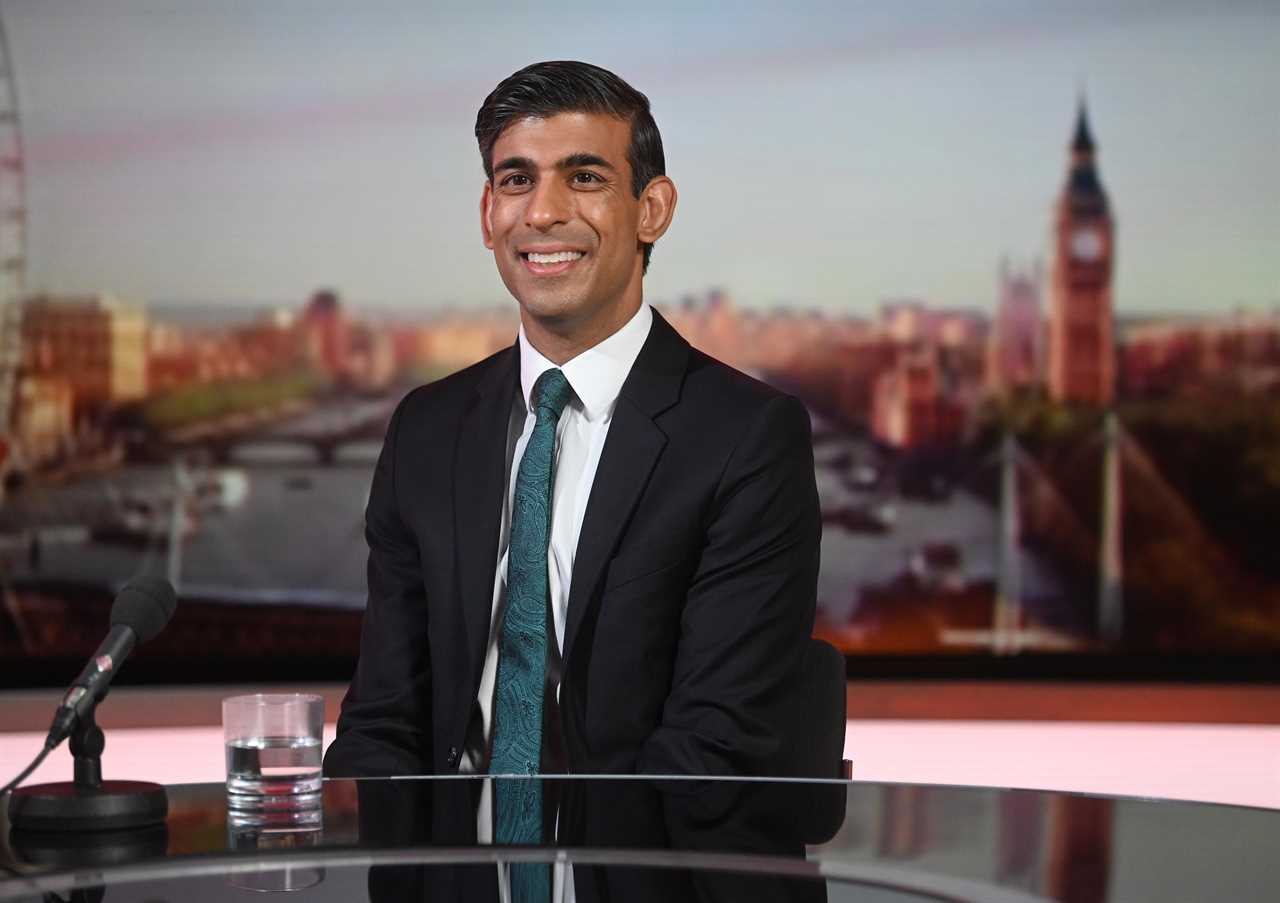RISHI Sunak will hike the minimum wage to £9.50 an hour tomorrow, giving a pay rise for millions of Brits.
The Chancellor is also set to unfreeze sector pay on teachers, civil servants and police wages.

Trending In The News reported today wages were set to rise from the current £8.91.
It means two million on the current wages will get a £1,000 annual increase for a 35-hour week from next year.
The independent expert body has previously hinted a big rise for 2022 is coming but there is concern in the Treasury about the impact on small businesses.
The rates are set on advice from the Low Pay Commission, which is due to make their recommendations to Mr Sunak today.
The rise comes just weeks after Boris Johnson said Brits deserved to be paid more.
Mr Sunk, asked if pay was going up, yesterday said: “We will have to set a new pay policy and that will be a topic for the spending review.”
The PM told the Conservative Party conference in Manchester this month: “We are not going back to the same old broken model with low wages, low growth, low skills and low productivity.”
And he urged businesses to put up wages.
And it puts the national minimum wage well on target to hit £10 by the time of the next general election, scheduled for 2024.
It also means Rishi will be able to say that for those Brits in work who had their Universal Credit cut by £20 a week, the hike in the minimum wage should cover it for the average worker.
Currently, Brits aged 23 and over are entitled to be paid a minimum of £8.91 per hour, with a lower sum of £8.36 for 21 and 22-year-olds.
Because borrowing is £135billion lower than predicted, Chancellor Rishi Sunak has more money for the three year spending review to be unveiled alongside his Budget.
Sainsbury’s and Morrisons are both offering above minimum wage as the supermarkets look to hire thousands of Christmas temps.
Lorry drivers have been offered £1,000 joining bonuses as an incentive amid shortages which are causing major supply chain issues across the country.
It is hoped such incentives will encourage Brits back to the workplace after the fallout of Brexit and the end of furlough. But there are concerns the extra outlay could hit consumers in the pocket
Experts say that higher wages being introduced to fill job vacancies, particularly in the hospitality sector, are driving product prices up along with it.






